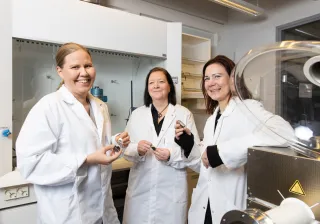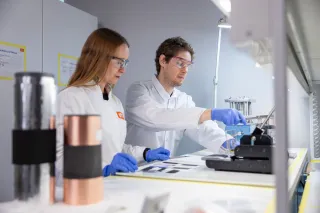Technology alone will not solve global problems and global problems will not be solved without technology. There are means, but they must be used more effectively. This cannot be achieved without extensive global co-operation and structural, systemically structured solutions.
The UN 2030 Agenda is a sustainable plan or operational programme for development that has been followed worldwide since 2015. The plan agrees on 17 SDGs (Sustainable Development Goals), which should be implemented by 2030. We are now a little over halfway through this journey. Perhaps it is time to examine what we have achieved and what we could still do?
Technology an important enabler
The SDGs include social dimensions such as the eradication of hunger and poverty and the promotion of health, well-being, education, equality, peace and justice. The ecological objectives target water, energy, climate and nature. From an economic perspective, decent work, economic growth, industry, innovations, infrastructure, urbanisation, consumption and co-operation are considered.
Technology is an enabler in achieving many of these objectives. For example, renewable energy technologies play a key role in sustainable energy objectives. Digitalisation can be used to promote co-operation and well-being. Biotechnology solves the challenges of food production and promotes the elimination of hunger. Circular economy solutions in turn develop sustainable industry, consumption and urbanisation. So, we have the technology, and there are numerous examples of this.
Realising only 15% of targets
Even though many solutions exist, according to the latest UN evaluation report, only 15 per cent of the programme's objectives seem to be possible to achieve. Wars and the pandemic, in particular, have created a set-back and increased the number of people living in hunger and poverty. However, there has been progress in areas such as the availability of clean energy and health care, especially as regards global child mortality.
According to a report by the World Meteorological Organisation (WMO), the amount of greenhouse gases in the atmosphere continued to rise in 2021, and the global average temperature was about 1.1 degrees higher than during the pre-industrial period. In addition, the last seven years have been the warmest in the history of measurements. So, technology has not solved climate change. On top of all this, the WWF reports that the planet's biodiversity is being impoverished at an alarming rate.
Promoting the social dimensions of sustainable development does not seem to be going any better. According to the OECD's 2023 report, Finland has identified areas of competence and well-being whose development is worrying and also weakens the economy. In addition, World Vision believes that the number of people suffering from hunger continues to grow dramatically in the world.
On the other hand, we can also witness progress: in late summer 2023, it was reported that 16 Finnish companies are developing their equality and non-discrimination work in a new UN training programme. In June 2023, the European Parliament agreed on the Corporate Sustainability Due Diligence Directive (CSDD) that requires companies to investigate and take responsibility for potential human rights violations and environmental damage in their global value chains. It is no longer enough for a company to manage its own plot if the entire value chain is not in order.
In a paradoxical way, the strengthening of equality and non-discrimination in the business world is likely to also be revealed by charges of racist treatment in companies and society at times. The aim is to respect different people, but the shortcomings show that we are still far away from reaching the goal.
Finland with best progress towards targets
From Finland's point of view, it is positive that according to the UN Sustainable Development Report 2023, we have implemented the goals the best: we are number one before Sweden, Denmark and Germany! Our strength is certainly strong technology expertise. However, technology alone does not solve the challenges we have, and there are economic and legislative obstacles, among other things, in deploying it. It is also difficult to change people's behaviour. This slows down the transition to more sustainable operating methods as regards eating, consumption and the circular economy, for example, and co-operation and equality between people.
New technologies are sometimes met with doubt, fear and rejection. Technology can also be expensive or cause harm. For example, metals are needed in the utilisation of renewable energy, but the mining industry has ecological and social impacts. Impact management is, of course, possible, but requires financial investments. In addition, technology always involves risks and safety challenges, which restrict the approval of, for example, hydrogen technology and small nuclear reactors.
Global problems can only be solved together
Managing the major challenges of sustainable development is a complex process, and solving it requires extensive multidisciplinary, operational and political co-operation between companies, states and civil society. We already have solutions, but they need to be applied more effectively. We may need radical innovations, but they can also be simple, affordable and easy to implement. The so-called frugal innovations are based on the idea of producing more for less. Examples of such innovations include water purification technology, which produces the necessary structural changes to accelerate the achievement of the SDGs.
At VTT's hybrid seminar on sustainability and responsibility on 8 November 2023, we will meet in G-Livelab in Tampere to discuss, among other things, purposeful innovations and other opportunities, as well as obstacles and ways to overcome them. The programme includes speeches and discussions on the topics of business, administration, civil society and research. We will ask ourselves where we are at with the 2030 Agenda goals and how we should focus our efforts as 2030 draws closer.
Check out the full program and register as a remote participant to the seminar by 3 November here.








